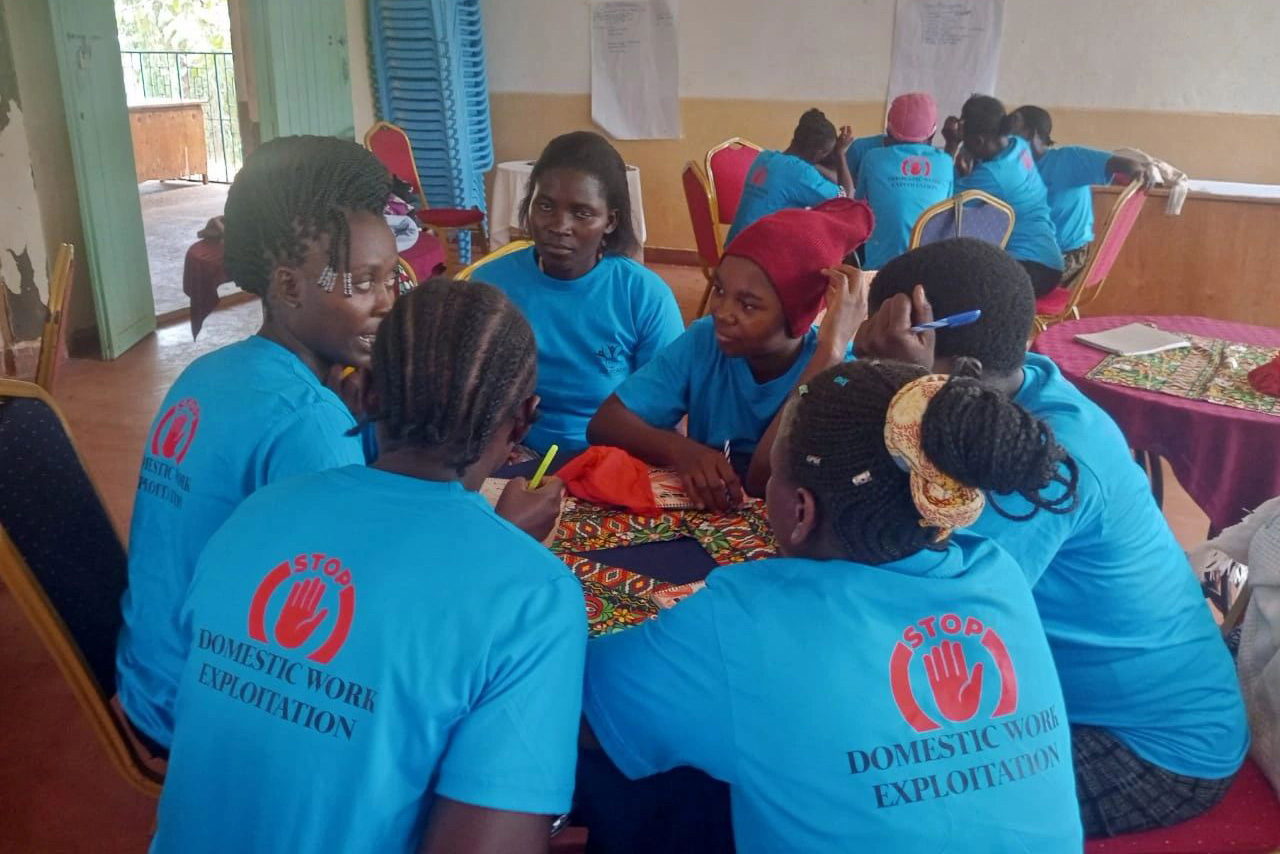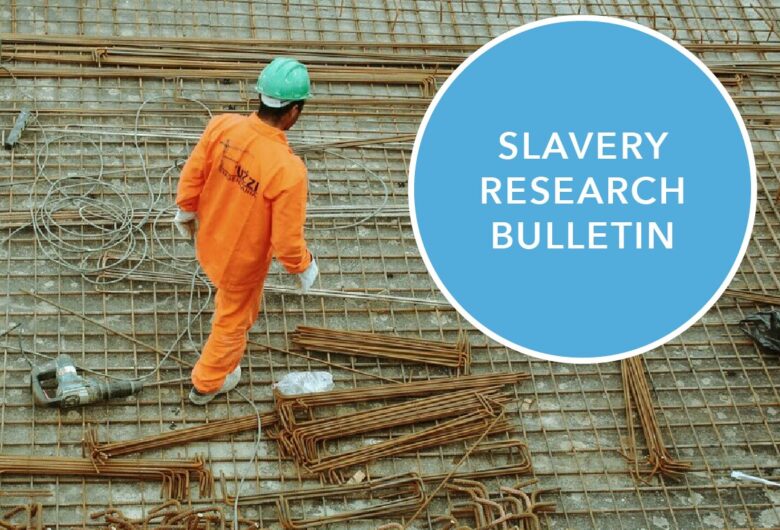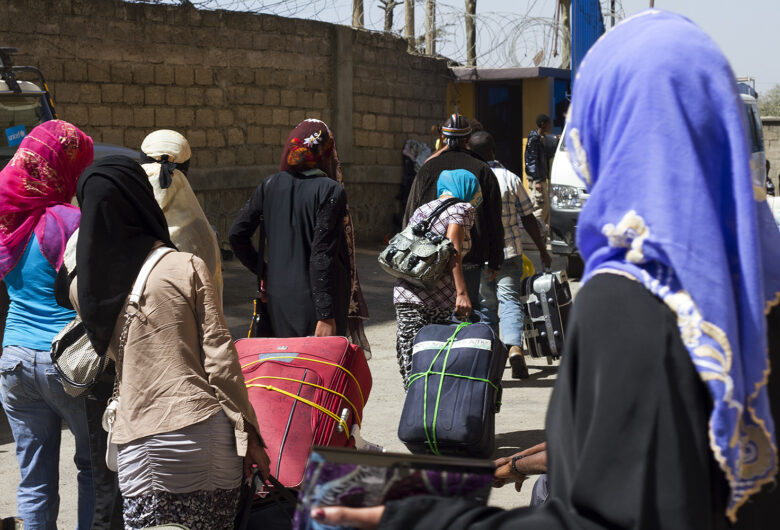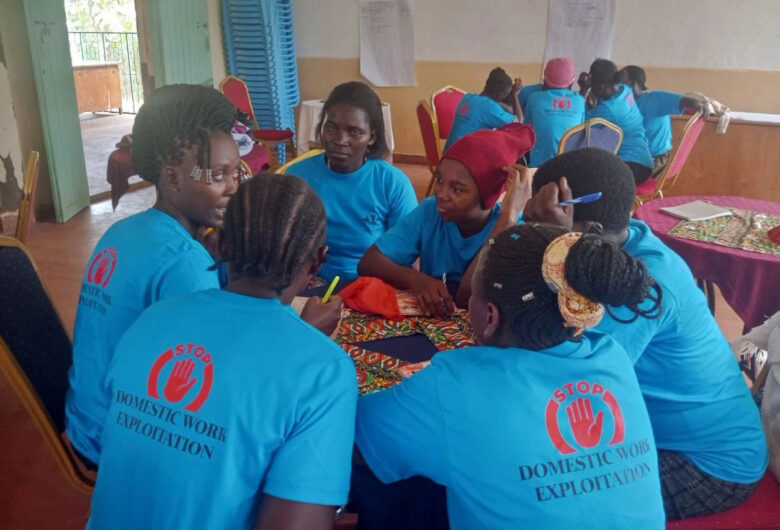Survivors leading their own path to freedom
In the heart of Kakamega County, Kenya, a quiet revolution is unfolding. For years, economic hardships have forced young girls into exploitative domestic work, trapping them in cycles of underpayment, long working hours, and harsh employed conditions. But now, survivors are turning the tide—not as victims, but as leaders of their own futures.
Through the support of the Freedom Fund’s NIA Program, WE REACH is walking alongside these young women, equipping them with professional skills, financial independence, and the collective strength to reclaim their power. This is a story of resilience, of women who refuse to be defined by their past, and of a future where they stand tall as changemakers in their communities.
To break the cycle of exploitation, WE REACH partnered with the Capacity Training Institute (CTI) to offer a three-day intensive home management course, certified by the National Industrial Training Authority. This training equipped 30 survivors with practical skills in operating modern kitchen appliances, mastering culinary techniques, and handling home management responsibilities with professionalism.
“I would like to appreciate WE REACH for training us on home management skills. We now have the skills we need during domestic work periods. Some of us now know how to operate kitchenware and marinate chicken.”
– Snidah Atieno, chairlady of the survivor network
These are not just lessons in cooking or cleaning; they are tools for dignity, independence, and a future beyond exploitation. Employers who once undervalued their work now recognise their expertise. And as their confidence grows, so does their determination to advocate for themselves and others.
“The work WE REACH is doing for the community, especially for girls and women who have survived exploitation, is commendable.”
– Benard Namusasi, CTI Principal
Inspired by their resilience, he further suggested the possibility of creating internship opportunities in local hotels to enhance practical experience and ensuring the skills they’ve gained translate into meaningful employment—an idea WE REACH is eager to explore, despite logistical hurdles.
But survival is not just about employment. It’s about belonging.
Recognising the importance of peer support, WE REACH helped survivors form a network—a space where they could share experiences, find encouragement, and build a collective voice. What began as an informal group of women seeking connection has now become an officially registered organisation under the Department of Social Services in Kakamega.
This formal recognition has unlocked new opportunities, empowering them to fund their own futures. Together, they have created two savings and loans groups, allowing survivors to pool resources, invest in small businesses, and step confidently into financial independence.
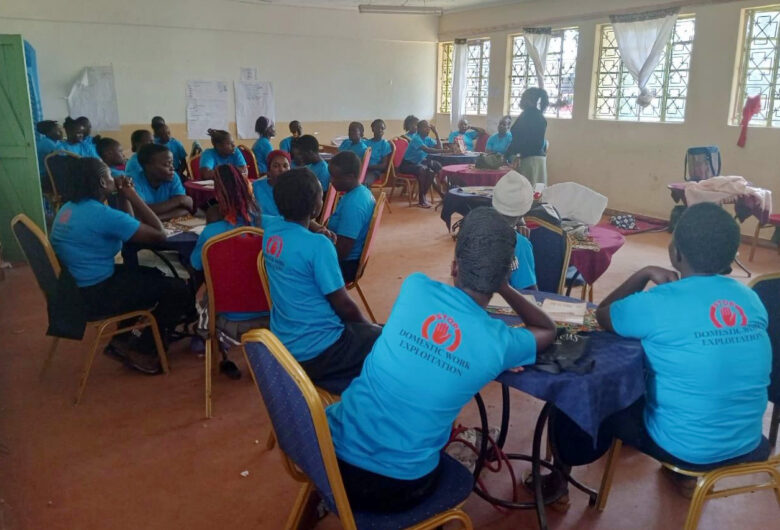
And then came a breakthrough.
The network secured an unrestricted grant from the Freedom Fund’s Survivor Leadership Fund. They then launched income-generating projects, including a Resource Training Center. Here, survivors now learn digital and tailoring skills, with access to sewing machines and desktops. But more than that, the center itself is a source of income—leased out as a training hall, sustaining their growing independence. Snidah Atieno, a survivor herself, now manages the Centre, playing a vital role in coordinating survivor-led initiatives and mentoring fellow members.
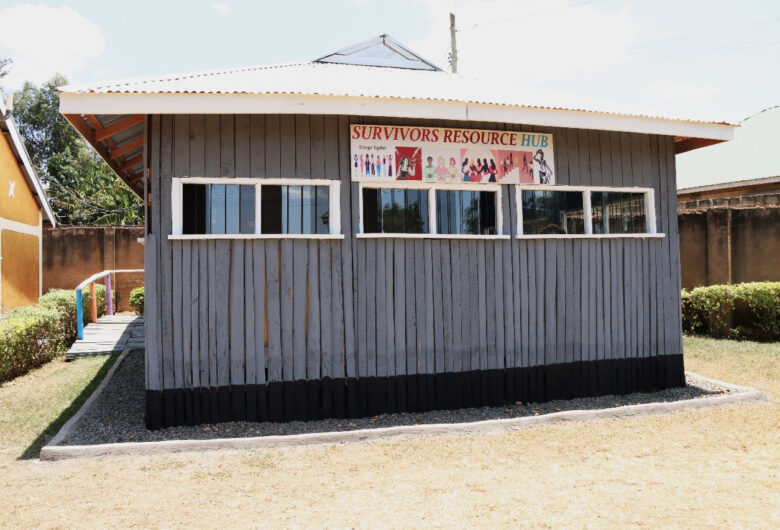
Recognising the need for sustainable economic ventures, survivors have taken bold steps into agribusiness. They launched a local chicken farming initiative, starting with 85 chickens—some already laying eggs. More than just a business, this venture is a learning opportunity. Survivors are mastering poultry farming, gaining skills in animal care, and securing an affordable, sustainable food source. For those interested in starting their own farms, the network provides chickens at subsidised prices, ensuring economic growth spreads far beyond their group.
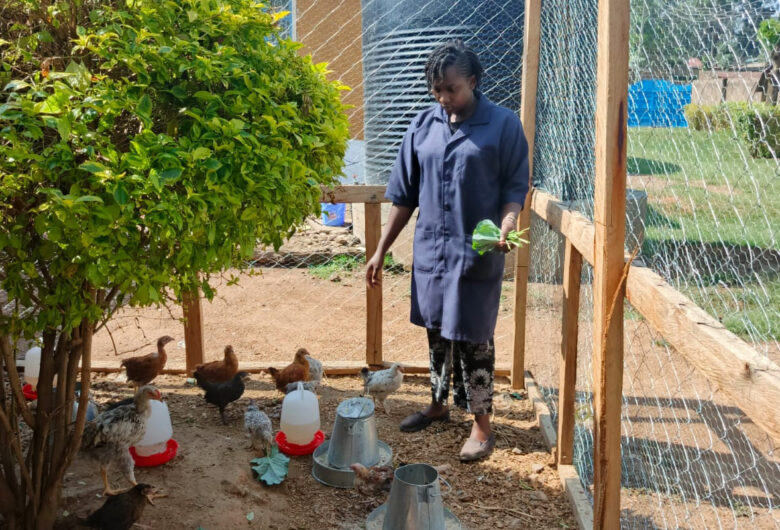
And it doesn’t stop there.
They have also established a thriving farm of traditional vegetables, growing nutritious local greens for sale while doubling as a demonstration farm. This farm has attracted the interest of local universities and agricultural institutes, eager to use it for research—bringing new partnerships and funding opportunities into their hands.
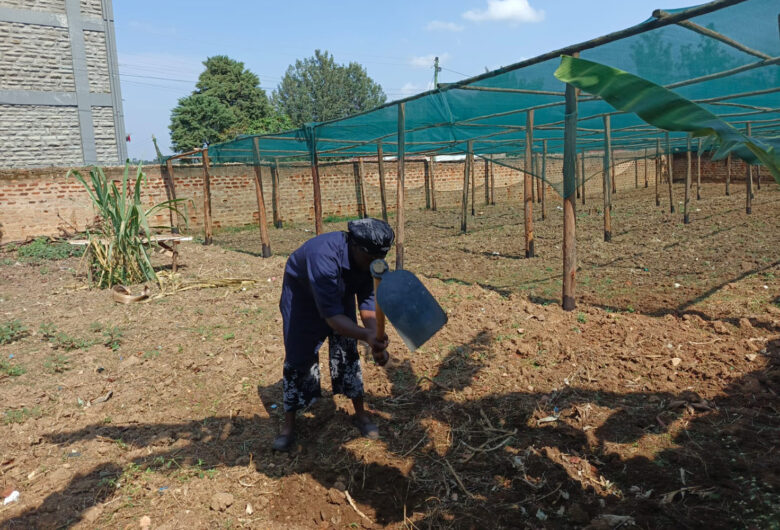
The impact of these initiatives is undeniable. From learning home management to running businesses, these women are reshaping their lives on their own terms. WE REACH has demonstrated its commitment to empowering survivors with the skills, financial stability, and community support necessary for rebuilding their lives and diversifying their source of income to sustain their families.
While the progress has been remarkable, the journey is far from over. Survivors have voiced the need for extended training periods to deepen their practical skills, as well as stronger partnerships to facilitate job placements and internships.
To scale up these initiatives, additional financial support and collaboration with local and national government bodies are crucial. With the right investments, more survivors can break free from cycles of exploitation and step into a future of economic independence.
These women have proven their strength. They have built a network, launched businesses, and claimed their place as leaders in their communities. They are no longer just surviving—they are thriving.
And they are not stopping now.
With every skill learned, every loan taken, and every business launched, they are writing a new story—one where they control their own futures.
This is more than an initiative.
This is a revolution led by survivors, for survivors.
And it is only just beginning.

